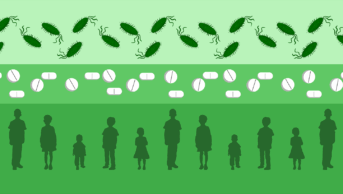
Shutterstock.com
The chief safety officer of the Medicines and Healthcare Regulatory Agency (MHRA) has said she shares campaigners’ concerns about the number of women still being prescribed sodium valproate, as data show that an NHS England target to reduce its prescribing to women of child-bearing age has not been met.
Figures published by NHS England show that 15,095 females under the age of 54 years were taking valproate in September 2024. While this is a 45% reduction compared with the 27,441 females taking the medicine in April 2018, it has not met an NHS England target for a 50% reduction by the end of 2023.
Commenting on the data, Janet Williams and Emma Murphy, founders of the support group Independent Fetal Anti-Convulsant Trust (INFACT), said: “We are terribly disappointed that women are failing to be regularly updated by GPs and neurologists, and are slipping through the net finding themselves pregnant while still on valproate.
“We understand there are going to be a small number of women who are unable to switch medications or have already tried to do so with no success: those women should be closely monitored and taken care of. However, children still are being harmed by this drug with no support for families having great difficulty with diagnosis which leads to problems in later life as they go throughout the system.”
INFACT wrote to the MHRA expressing their concerns, and a response from Alison Cave, its chief safety officer, seen by The Pharmaceutical Journal, said: “We absolutely share your concerns and we remain committed to preventing avoidable harm to children. We are monitoring the available data closely.”
Sodium valproate is an antiseizure medicine used to treat epilepsy. The use of valproate by pregnant women has been associated with a high risk of congenital malformations and neurodevelopmental disorders in their children.
In 2018, the MHRA announced that the medicine must not be prescribed to women or girls of child-bearing potential unless they are on a pregnancy prevention programme (PPP).
In January 2024, the MHRA said that new valproate prescriptions must be signed off by two specialist doctors. Female patients already taking the medicine also require an annual risk acknowledgement form to be completed at an annual review, which must be signed by two specialists for the medication to continue.
Williams and Murphy added: “The [Department of Health and Social care has] now had almost 18 months since the Hughes Report [published by patient safety commissioner Henrietta Hughes] was released and therefore must make their decisions over the recommendations made urgently and ensure those harmed do not continue to suffer any longer than necessary.”
Cave also said that the MHRA was “concerned to hear that some women are not being asked to complete the acknowledgement of risk form”.
“Our aim is to reach a position where valproate is only prescribed to those who really need it and that patients for whom other medicines are safe and effective are offered those treatments first, such that they and their offspring, are not exposed to the reproductive harms of valproate,” she added.
“Please can I reassure you that we will keep the regulation of valproate under continued close scrutiny and we will continue to support the clinical care of patients with the most stringent regulatory position and ensure the latest safety information is available to prescribers and patients to support the benefits and risk discussions.”
Tase Oputu, chair of the Royal Pharmaceutical Society (RPS) English Pharmacy Board, said: “While there is still room for improvement, a 45% reduction in valproate prescribing for women of child-bearing age is a significant and welcome step forward. It reflects the impact of the valproate PPP, the MHRA’s updated regulatory requirements and collaborative efforts across the health system.
“Pharmacists continue to play a key role in supporting these measures, making sure both female and male patients are fully informed of the risks and alternatives surrounding pregnancy, and that those still prescribed valproate are closely monitored.”


